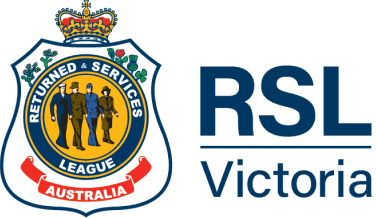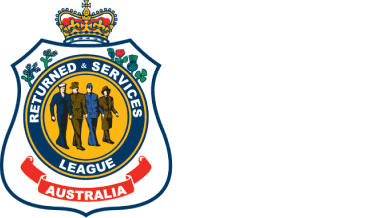Photography by James McPherson.
Jim Dewar can vividly recall the moment he truly arrived in Vietnam, and it was long before he ever stepped foot in the country.
As the young soldier and his mates aboard HMAS Sydney sailed up the South China Sea towards the Vietnam coastline, the smell of war and the intense heat piqued their senses.
“We saw military vessels in the harbour and aircraft overhead and knew it was now game on,” Jim recalled.
“Until then it’d been pretty relaxed on board. We sunbathed on deck, we were given plenty of food and we even had a beer ration, but suddenly it all became very serious.
We were allocated weapons, issued with last-minute instructions and the next morning, American Chinooks arrived to fly us straight into Nui Dat. Within minutes we watched the ship disappear behind us and soon found ourselves in a fully active war situation surrounded by the unknown.”
"We went from zero, to lean, mean killing machine."
Jim Dewar
Jim Dewar was just 20 when his birth date was drawn in the controversial lotto-style National Service ballot in 1965. He was among the first to be conscripted to the Vietnam war, but his service was deferred so he could finish a hairdressing apprenticeship.
Three days after he graduated in 1966, Jim was off to Puckapunyal to begin training; one of 60,000 young Australians sent into battle.
It has been 60 years since Australian troops entered the Vietnam War, but there’s not a day that goes by that Jim Dewar doesn’t think about his time there. Together with a group of passionate fellow veterans, Jim has dedicated his retirement years to ensuring that the human story of Australians in Vietnam, and the lasting impact of their
experiences, is understood by future generations.
The Vietnam Veterans’ Association of Australia Education Team, affectionately known as the E-Team, started from a single request to veteran Phil White OAM in 1989.
When word spread about Phil’s passionate and engaging presentation, more requests soon followed and the team of volunteers grew.
Prior to an enforced break during the COVID-19 pandemic, the group was speaking to around 6000 students every year, along with Probus, Rotary and other community clubs, and they’ve recently hit the road again.
“I think we have a slightly anti-war sentiment in the country
at the moment,” said President of the E-Team, Rob Edgell.
"Our presentations are not pro-war or against it, we keep a very balanced perspective. Our real message is that it’s terribly damaging to go to war, and we have to look after our veterans."
Rob Edgell
Rob Edgell was 19 years old when he was sent to Vietnam in June 1970 as part of the 1st Australian Reinforcement Unit. It was a baptism of fire as his first night with the 7RAR Battalion immediately followed a bloody contact with the Viet Cong. The platoon had taken some wounded and quite a number of the enemy were killed.
"From the moment we arrived we knew this was serious and we had a very clear understanding that we were in a war zone. We were fighting for our lives every day."
Rob Edgell
Like so many veterans, Rob Edgell and Jim Dewar’s time in the war zone didn’t end when they arrived back in Australia. Both were plagued by their service, compounded by the anti-war sentiment they faced at home, and suffered PTSD at various stages of their lives.
“When I arrived back, Dad took me to a RSL Sub-Branch based in Melbourne’s north-east to join up together,” Rob said, “but they literally said to me, ‘Come back when you’ve fought a real war’. What upset me most about that was seeing how much it upset my dad. Not long after, the Watsonia RSL Sub-Branch found out about the incident and contacted me inviting me to join them. At first, I wouldn’t even speak to them I was so upset, but they persisted, and eventually we joined.”
“Across the community there was an underlying tension towards Vietnam vets and, in the end, it was easier not to tell anyone you’d served in Vietnam.”
When Jim Dewar returned after “12 months, 13 days” of service, he also found that Australia had changed.
Heartbreakingly, one of Jim’s lifelong best mates turned his back on him. They didn’t speak to one another for more than five decades but were recently reunited.
“He refused to speak with me. That was tough. We recently bumped into one another at a friend’s funeral. The first thing he said to me was: ‘I’m sorry’. He was sorry for the way he treated me. It brings a tear to my eye thinking about it now,” Jim said.
"It was much more difficult to transition back into Australian society after Vietnam than it was to transition to Army life. I was a completely different person when I came home; my life had totally changed."
Jim Dewar
Rob and Jim agree the Vietnam Forces Welcome Home Parade in Sydney 1987 was a turning point for the veterans.
It changed the way many Australians viewed our involvement in Vietnam and encouraged veterans to open up about their experiences. So when Rob and Jim were asked if they’d share their stories as part of a program to educate future generations about war, they jumped at the chance.
Both agree that sharing their stories has been a cathartic and healing experience.
“My wife and kids knew very little about my service and I never talked to them about what happened in Vietnam. I was pretty messed up with PTSD for a while,” Jim said.
“Talking to the students helped me get a lot of bad feelings out and I’ve found the school talks have been very therapeutic for me. One of my daughters asked if she could come along one day and hear me speak, which was lovely. She got a lot out of it, and we’ve become a lot closer since then.”
Rob Edgell said the students are very insightful and often ask very considered questions. However, at times the questions can be confronting.
"The first time I was asked if I’d killed someone, the question came from a young girl, a Year 12 student. It was a fair question, so I answered as truthfully as I could. Often, when I was at the point of bringing my weapon up to discharge, there were a lot of people behind me doing the same thing. I’m not sure if I fired the first or the fifth shot."
Rob Edgell
“We don’t glorify war, nor do we demean it. We talk about why Australia got into the war and the way we did, and we talk about how servicemen were treated in the hope that it never happens again. We want people to know to that war is not fun and it’s not fair. We want to get the message across about war by being open and as graphic as we can be without crossing a line.”
"We describe the hardships and the dangers and how people died. Good friends died right beside us."
Rob Edgell
Despite initial reluctance, Jim and Rob have both returned to Vietnam since their service and found the experience to be enjoyable, immersing themselves in the culture, the people, the food and the beautiful scenery of Vietnam; a far cry from their experiences during their first tour of duty.
Rob Edgell said his initial nerves about returning were very quickly overcome.
“I was worried about how it would affect me, but I loved the food and the people, and it was a really enjoyable experience.”
It’s a sentiment Jim shares.
“I enjoyed it so much I went back a second time. I’d seen the animosity in the place and the war mongering, it was a totally different experience to see the country and the people through very different eyes, but happily that chapter is closed for me now.”
To book a talk from the Vietnam Veterans’ Education team go to www.facebook.com/VietnamVeteransAssocAustraliaVicBranchEduc/

